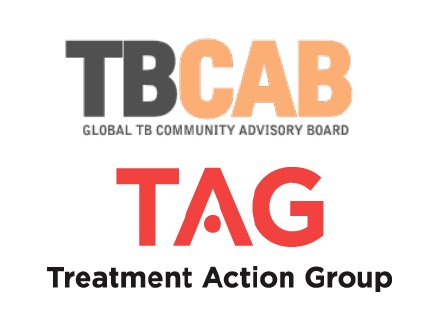
The Global TB CAB and TAG commend the investigators for sharing results early and openly with a diverse group of key stakeholders, and urge the scientific community and funders to continue efforts to find different options to prevent TB.
December 21, 2023 – This week, the Statens Serum Institut (SSI) and IAVI shared topline results of the phase IIb trial of H56:IC31, a subunit TB vaccine developed by SSI in Denmark consisting of four Mycobacterium tuberculosis antigens and the IC31 adjuvant made by Valneva. Detailed information about the trial is available on ClinicalTrials.gov: NCT03512249.
The trial was conducted by the Prevention of Recurrence (POR) TB Consortium, led by IAVI and SSI and funded by the European and Developing Countries Clinical Trials Partnership. It enrolled 831 participants at six trial sites in South Africa and Tanzania. Participants were people who had recently completed treatment for drug-sensitive TB. The trial tested whether vaccination with H56:IC31 reduced the risk of people developing TB again, an outcome called recurrent TB (defined as either relapse or reinfection).
The results of the trial were disappointing. While the vaccine was well tolerated, it did not reduce the risk of recurrent TB disease. In fact, investigators observed more recurrent TB among participants who received H56:IC31 (23 of 400 participants, 5.8%) than among participants who received the placebo (14 of 406 participants, 3.4%). Most of these recurrent TB cases were judged as relapse rather than reinfection.
Based on these results, SSI announced that it is discontinuing further development of H56:IC31.
“While the results are disheartening, it underscores the need for TB vaccine research and generating data to help move science forward,” said Ani Herna Sari, co-chair of the Global TB Community Advisory Board (Global TB CAB). “Ultimately there are no ‘bad’ results, because investigators collected data that we learn from. Knowing what doesn’t work may help us to discover what does.”
The Global TB CAB and TAG commend the investigators for sharing results early and openly with a diverse group of key stakeholders, starting with the participants themselves and the community advisory boards at the trial sites. We appreciate that the study team shared not only topline results and key messages, but also preliminary analyses of safety and efficacy outcomes. In doing so, the POR TB Consortium has set an example of early, honest, and transparent results sharing that other developers in the field should follow.
Even as this study closes, other TB vaccine trials are ongoing or preparing to begin, and these studies must continue. Most of these trials are testing other TB vaccine candidates against different primary endpoints than the prevention of recurrence (POR) endpoint used in the H56:IC31 phase IIb trial and are therefore enrolling different populations of people at risk of TB. Participants in the H56:IC31 phase IIb study had recently completed treatment for drug-sensitive TB. Other ongoing and planned trials are testing whether vaccines can prevent TB disease among people who have not had it before or prevent TB infection among uninfected individuals. These study types are known as prevention of disease (POD) and prevention of infection (POI) trials, respectively.
New vaccines against TB remain an urgent scientific priority. In our view, the field should continue to develop and test diverse vaccine candidates in different study designs looking at a range of primary endpoints: POD, POI, and POR. This outcome underscores the need to understand why H56:IC31 appeared to increase the risk of recurrent TB in this population. Further analyses of trial data should be prioritized and communicated early with other researchers pursuing POR studies. To inform this work, our groups would like to put forward the following questions as important ones to answer:
This moment also underscores the importance of engaging communities early and often and throughout all stages of TB research – from study to design to trial conduct to results dissemination and interpretation. As researchers learn more from this study, we encourage them to consult with our groups, local CABs, and other community stakeholders to think through the implications of the full findings.
“With every well conducted clinical trial the TB vaccine field grows stronger,” said Mike Frick, TAG TB project co-director. “When the world finally develops new TB vaccines, this achievement will stand on the foundation built by the many prior clinical trials, which through either success or failure, contributed the knowledge and insights by which good science grows.”
We urge the scientific community and funders to continue efforts to find different options to prevent TB, including vaccines that may help people treated for TB avoid experiencing the disease again.
Source: Treatment Action Group